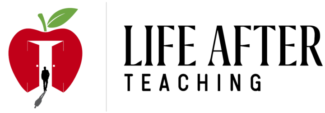
Let’s be honest. Teaching has become very difficult. Heavy workloads, administrative pressures, a lack of work-life balance, and the emotional toll of managing classrooms of rowdy students are driving teachers out of the classroom. If you are one of them, it’s crucial to understand that the skills and experiences you’ve accumulated as a teacher are valuable and highly transferable. We are going to show you the process of identifying and articulating these transferable skills during your career transition.
What Are Transferable Skills?
Transferable skills are skills that you develop in one setting that can be utilized in another. These are skills you’ve accumulated over the course of your career that are not specific to teaching but are valued in many other professions. They are also known as ‘soft skills’ because they can be taken with you from job to job.
Identifying Your Transferable Skills
Due to the nature of the job, most teachers have a wide range of transferable skills; the trick is to identify them accurately. Here are some examples, (this list is in no way exhaustive):
- Communication Skills: As a teacher, you have perfected the art of effective communication, whether orally, in writing, or through non-verbal cues.
- Problem-Solving Abilities: Every day in the classroom brings a unique set of challenges that require on-the-spot and strategic problem-solving.
- Leadership and Teamwork: Managing a classroom, leading educational projects, or coordinating with colleagues are clear indicators of leadership and teamwork skills.
- Organizational Skills: From lesson planning to maintaining grade records, teachers develop outstanding organizational and administrative abilities.
- Adaptability and Flexibility: Adapting teaching methods to cater to individual student needs and changing curricula requires a high degree of flexibility and adaptability.
- Patience and Empathy: Working with students of varying abilities and backgrounds has honed your patience and ability to empathize.
- Creativity: Teachers often need to create engaging lesson plans, find innovative ways to explain complex concepts, and come up with educational games or activities. This ability to think creatively can be valuable in many careers, particularly those that require problem-solving and innovation.
- Critical Thinking: In order to adjust teaching strategies to meet different learning needs, teachers often need to assess students’ understanding and think critically about the best approach to aid their learning. This critical thinking ability is sought after in many roles that require decision-making or strategy development.
- Conflict Resolution: Managing a classroom involves resolving conflicts between students, mediating disputes, and maintaining a harmonious learning environment. This skill is useful in any role that requires teamwork or customer service.
- Time Management: Teachers need to manage their time effectively to cover all the necessary material while also accommodating various classroom activities and tasks. Time management skills are important in almost every profession.
- Resilience: Teaching can be a challenging profession, with high-stakes responsibilities and unpredictable situations. The resilience developed in this role is a valuable skill that can help you overcome challenges in any career.
- Cultural Sensitivity: Teachers often work with students from a variety of cultural backgrounds and need to create an inclusive learning environment. This skill is crucial in any role that involves working with diverse groups of people.
- Data Analysis: Teachers often need to assess student performance data to identify areas of improvement, understand the effectiveness of teaching methods, and make data-driven decisions. These data analysis skills can be transferred to roles in many different industries.
It would be helpful for you to reflect on your teaching career and make a list of your skills. Remember, you bring a unique set of experiences, and identifying your unique set of skills may require some time and thought.
Articulating Your Transferable Skills
Once you’ve identified your skills, the next step is articulating them during a career transition, particularly in resumes, cover letters, and job interviews.
- Resumes and Cover Letters: Highlight your transferable skills in your resume’s skills section. If possible, include quantifiable data or examples that demonstrate how you’ve applied these skills in your teaching career.
- Job Interviews: When discussing your previous experience, frame your teaching experience in a way that highlights these transferable skills.
For example, instead of saying, “I taught science to eighth-grade students,” you might say, “I utilized my strong communication skills to present complex scientific concepts in an easily understandable manner to a diverse group of students, developing tailored problem-solving approaches to cater to individual learning needs.”
Conclusion
Transitioning from teaching to a new career can be a challenging process. However, the skills you’ve acquired as a teacher are highly valued across multiple industries. The key is identifying and articulating these transferable skills during your career transition effectively.
That’s precisely our goal with our Life After Teaching Resume and Transition Crash Course. We’ll help you say goodbye to generic resumes and hello to personalized resumes that highlight your unique skills!
Remember, you are more than just your job title; you are a bundle of skills, experiences, and strengths that can contribute significantly to roles in many other industries and jobs.
